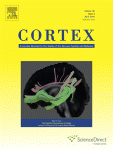Desinging for the Memory Changes in Older Adults
As we age the performance of working memory changes. A big change that researchers have recently uncovered is that we lose the capacity to filter out irrelevant information when we try and form memories. The inability to ignore distractions leads to hyper-binding or encoding irrelevant bits of information. I covered this earlier in Hyper-Binding and Memory in Elderly.
 But what is a cognitive designer to do? How can we adjust our designs to overcome this change in the performance of working memory? One approach involves making older adults aware of potential distraction before they occur. In principle this could help them focus or use metacognition to compensate. A new study just reported in Cortex, an international journal focused on cognition and the nervous system, dashes any hopes of that working.
But what is a cognitive designer to do? How can we adjust our designs to overcome this change in the performance of working memory? One approach involves making older adults aware of potential distraction before they occur. In principle this could help them focus or use metacognition to compensate. A new study just reported in Cortex, an international journal focused on cognition and the nervous system, dashes any hopes of that working.
The study, Memory Decline Linked to Inability to Ignore Distractions, found that hyper-binding occurs in older adults even when they have prior knowledge of the impending distraction. Specifically,
Interestingly, the researchers found that later stages of neural processing (500-650 milliseconds after item presentation) do show signs of suppression, confirming that the “suppression deficit” is related to early stages of neural processing. The findings suggest that a working memory decline in older adults is indeed due to an inability to ignore distracting information, which furthermore cannot be improved with preparedness.
This is an important finding for cognitive designers. It tells us being aware of impending distractions will not improve memory encoding in older adults. What then should we do to mitigate the effects of hyper-binding?